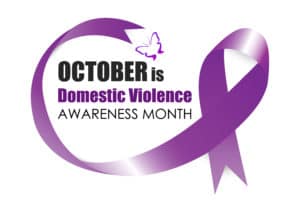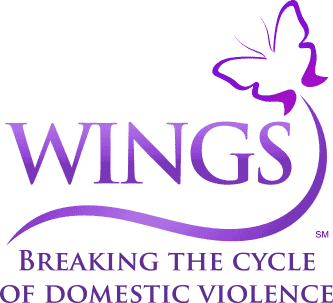WINGS Staff Reflect on One Million Nights of Shelter Milestone
- Posted by Sarah Swiston
- On October 13, 2021
- Chicago, chicago metropolitan area, Chicago suburbs, children survivors dv, Domestic Violence, domestic violence agency, domestic violence organization, DV agency, End Domestic Violence, Housing Programs, non-profit, Shelters, WINGS, WINGS Program
- La Tonya Walker, WINGS Chief Program Officer
- Christy G., WINGS Senior Manager of Housing Services
WINGS Chief Program Officer, La Tonya Walker, and WINGS Senior Manager of Housing Services, Christy G., recently reflected on WINGS one million nights of shelter milestone. They share how the agency has evolved, throughout their long tenures with WINGS, to best assist survivors.
Reflecting on One Million Nights of Shelter and Safe Housing
When La Tonya and Christy reflected on one million nights of shelter and housing, a number of memories stood out to them:
- Multiple collaborations that took place to find a person a safe place;
- Brainstorming solutions for a survivor so she didn’t lose custody of her children;
- Assisting a client who had a small fire in her unit after normal work hours;
- How the Celebration of Courage began as a ceremony to honor transitional housing graduates with pizza at one of WINGS congregation partners to a plated dinner at a nice banquet hall for many years, prior to the pandemic.
These memories represent a small portion of the thousands of survivors served through WINGS million nights of shelter and safe housing.
Evolving Service Delivery
Trauma-Informed Approach
La Tonya shares, “Our shelter used to be set up as a consequence system and it was a total shift in mind-set to move away from that to embrace a trauma-informed approach.”
A trauma-informed approach realizes the widespread impact of traumatic events and experiences on survivors. In an effort to actively resist re-traumatizing people, the agency responds by integrating knowledge about trauma into practices. Guiding principles to a Trauma-Informed Approach include:
- Safety – ensuring physical and emotional safety
- Trustworthiness – maximizing trust through transparency, consistency and personal boundaries
- Choice and Peer Support – maximizing the survivor’s ability to make choices and control goal plans
- Collaboration – survivors develop their own goals with support from WINGS staff
- Empowerment – prioritizing skill-building and building upon strengths
- Cultural, Historical and Gender Issues – creating processes that are responsive to racial, ethnic and cultural needs of the survivors served
Learn more about Trauma-Informed Care here.
Survivor-Centered
 Christy shares, “One of the reasons I’ve been at WINGS for so many years is how we look at each client and their individual needs to see what will best work for them. One example is all of the agency’s departments working more closely together.
Christy shares, “One of the reasons I’ve been at WINGS for so many years is how we look at each client and their individual needs to see what will best work for them. One example is all of the agency’s departments working more closely together.
I’m in constant communication with all of WINGS different departments. I keep the administration staff in the loop if I believe we will need a cut check quickly for a rent payment. They have even helped me by calling ComEd to make sure utilities are turned on for our survivors.
The agency has grown from being segmented by job titles to each department being more client-centered. We now look at policies to say, ‘how can we modify this policy to honor its integrity, while still best serving the client?’”
Less Childcare and Transportation Funding, More Housing Options
 “There used to be a lot more funding for daycare and transportation from HUD (U.S. Department of Housing and Urban Development). A large amount of staff’s time used to be submitting funding requests, but now all those funding streams have dried up,” Christy says.
“There used to be a lot more funding for daycare and transportation from HUD (U.S. Department of Housing and Urban Development). A large amount of staff’s time used to be submitting funding requests, but now all those funding streams have dried up,” Christy says.
“Yes, as an agency we now have to figure out how to break through those barriers when our clients could benefit from lawyers, childcare, a car fixed and more,” La Tonya replies.
La Tonya adds, “The way we deliver services and the things we can help clients with has changed. WINGS has significantly grown and diversified the amount of housing stock we are able to offer. We are one of the most varied in the area.”
In addition to the two emergency Safe Houses, WINGS has:
-

Shared Living Homes that accommodate 2-3 families in a single residence. Families may live in the homes for no cost for up to six months
- Transitional Housing where participants pay 30% of their adjusted gross income to offset expenses. Families can stay in WINGS leased transitional apartments for up to two years.
- Individualized Transitional Housing Program offers survivors 24 months of support to live in homes of their own choosing. Through this program, WINGS is able to provide 100% of the families rent up to $1,000 for the first 12 months and up to $500 for the remaining 12 months.
- Extended Stay Housing allows a family moving out of the WINGS Metro Safe House a place to stay for up to a year, with a monthly rent of $150.
- Permanent Supportive Housing provides eight long-term residences for individuals who have a documented disability.
- New – Rapid Rehousing units: In collaboration with Apna Ghar, WINGS has received 100 Rapid Rehousing units citywide to decompress domestic violence shelters which have seen increased need and 10 units through a partnership with Northwest Compass.
Ready for Change
“No one loves change, it can be easier for organizations to say, ‘This is our policy and that is that.’
However, I’ve found at WINGS it is an asset to try new approaches. It is important to hear what clients have to say, whether through an anonymous comment or through sharing with their case manager. We want the changes we make to be driven by clients, and to be safe and equitable for everyone,” La Tonya says.
Examples of this range from changing the name of the “Parenting Class” educational group to “Parent Support Group” to accepting clients who don’t identify as female.
“At WINGS, accepting everyone regardless of gender or gender identity was important and not just a box for us to check to be compliant. Helping end domestic violence for everyone is part of our mission…I remember taking in our first male volunteer and thinking about how hard that would be, to now having male staff being commonplace,” Christy shares.
Systems Change
Behind WINGS one million nights of shelter are the journeys and challenges of thousands of survivors. While this number is an accomplishment, it is still sobering that there is still so much need. Research has shown that major events such as health pandemics, natural disasters and recessions tragically result in an increase in domestic violence, even after the immediate crisis has ended.
While it is incredibly important to the community that WINGS is out there as a resource to survivors, it is a stark reminder that systemic change is needed to end domestic violence.
“I like our client work, but I hope in the future to not need it as much. My personal belief is that to make a larger impact we need to change the systems that perpetuate domestic violence. I think to penetrate that, we need to work on policies at the state level, work with other organizations with one voice to our mayors, commissioners and state senators.
- What if…the community held those who cause harm accountable;
- What if…systems were changed to provide survivors what they need;
- What if…we asked survivors what “reform” meant for them;
- What if…we didn’t need shelters and children could remain safely in their homes;
- What if…we could change laws, instead of just building more shelters;
- What if…we could address the root cause of why shelters are needed,” La Tonya shares.
 Christy adds, “Yes, one example of needed systems change is the lack of affordable housing. We work with local advocacy groups. Through these partnerships, we are working to obtain more affordable apartment buildings and change discriminatory rental practices.
Christy adds, “Yes, one example of needed systems change is the lack of affordable housing. We work with local advocacy groups. Through these partnerships, we are working to obtain more affordable apartment buildings and change discriminatory rental practices.
One fairly recent triumph was the ‘Just Housing Amendment.’ This new amendment says that landlords cannot use a potential tenant’s criminal history against them for small crimes committed in their past. This helps our clients be able to continue to make a fresh start.
When you give someone that chance, and they see that apartment for the first time…those moments keep me going. Although in my current role I do complete a lot of administrative reporting, I recognize that behind each number is a person and a story.”
 October is Domestic Violence Awareness Month
October is Domestic Violence Awareness Month
You can help provide a night of shelter and meal for someone needing a safe place to sleep tonight. Donate here: http://wingsprogram.com/dvam/
Learn about all of the ways you can make a difference in the lives of domestic violence survivors: http://wingsprogram.com/ways-to-help/





0 Comments